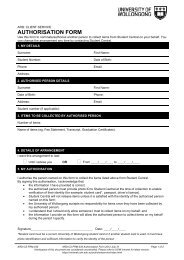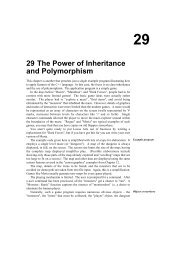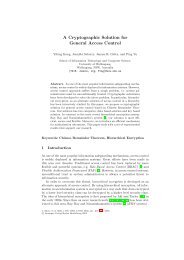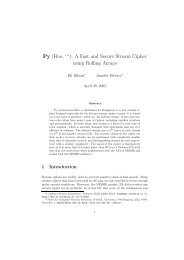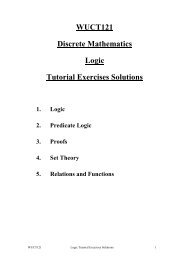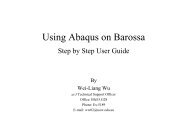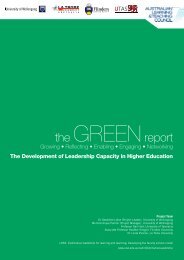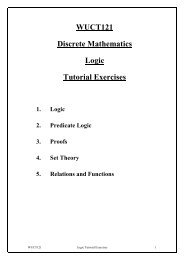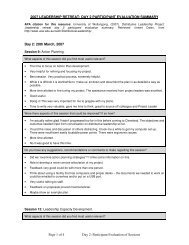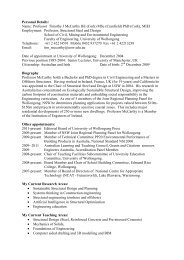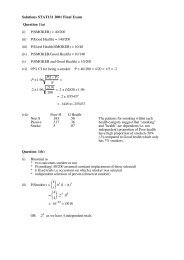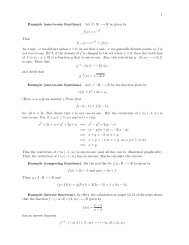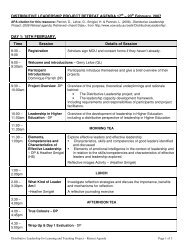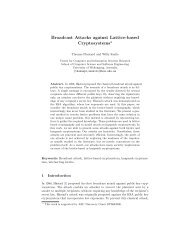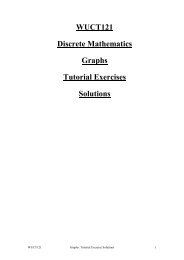india author m 1- a-nan - University of Wollongong
india author m 1- a-nan - University of Wollongong
india author m 1- a-nan - University of Wollongong
Create successful ePaper yourself
Turn your PDF publications into a flip-book with our unique Google optimized e-Paper software.
DAYANANDA, Y.J. "Manohar Malgonkar on his Novel The Princes: An Interview" JCL<br />
9.3 (1975):21-8. [interview?]<br />
DWIVEDI, A.N. The Historian as Novelist: Manohar Malgonkar" in NAIK, M.K.<br />
Perspectives on Indian Fiction in English New Delhi: Abhinav Publications, 1985: 136-49.<br />
JAIN, JASBIR. “Vishnu and Shiva: Symbols <strong>of</strong> Dualtiy in A Bend in the Ganges” Journal <strong>of</strong><br />
Indian Writing in English 3.1 (1975): 21-32.<br />
Substitution <strong>of</strong> Vishnu and Shiva as household gods indicates not only the father-son rift but<br />
the interpenetrating duality <strong>of</strong> human life. Hari (Vishnu) worships Shiva and is killed by<br />
Vishnudutt (though Shiva is ‘the destroyer’). Gandhi is presented as both saint and traitor.<br />
Traces other paradoxes.<br />
JANAKIRAM, ALUR. “Social Reality in the Short Stories <strong>of</strong> R.K.Narayan and Manohar<br />
Malgonkar” PURBA 19.2 (1988): 45-58.<br />
The IWE short story is mostly a post-Independence phenomenon. Considers Narayan’s 35year<br />
output up to Malgudi Days (1982) and Malgonkar’s more concentrated publications to<br />
Rumble Tumble (1977). Cite Narayan’s view <strong>of</strong> stories as a diversion from the hard work <strong>of</strong><br />
novels and arising our <strong>of</strong> characters undergoing a crisis <strong>of</strong> spirit, noting the variety <strong>of</strong><br />
characters, ironic turns <strong>of</strong> events and ordinary everyday situations in which comedy arises<br />
from people being unable to adapt to social change, even though there is an underlying<br />
impression that traditional wisdom will continue to inform Indian life. Malgonkar deals in war,<br />
jungles and mining, using more dramatic action and opportunistic chicanery, cinematic<br />
montage and a sharper irony.<br />
JAYASHRI, I. "Women Versus Tradition in the Novels <strong>of</strong> Manohar Malgonkar" Triveni 45.2<br />
(1976):73-80.<br />
JHA, MOHAN, "Malgonkar's Female Characters: A Study" The Quest 1.2 (1988): 6-22.<br />
JHA, MOHAN. "Malgonkar's Open Season: A Critique" in PRASAD, R.C. & SHARMA,<br />
R.K., eds. Modern Studies and Other Essays in Honour <strong>of</strong> Dr R.K. Sinha New Delhi: Vikas,<br />
1987: 239-46.<br />
MATHUR, P.S. "A Touch <strong>of</strong> Tar: Anglo-Indian Encounter in Malgonkar's Combat <strong>of</strong><br />
Shadows" The Indian Literary Review I.12 & II.1 (1980):22-9.<br />
PANDEYA, VIJAYANAND. "R.K. Narayan and Manohar Malgonkar: A Comparative<br />
Appraisal" The Quest 1.1 (1987):7-10.<br />
PARAMESWARAN, UMA. "Manohar Malgonkar as a Historical Novelist" in RAO, K.S.<br />
NARAYANA. ed. World Literature Written in English 14.2 (1975):329-38.<br />
PRADHAN, N.S. "Manohar Malgonkar: A Bend in the Ganges" in PRADHAN, N.S. ed.<br />
Major Indian Novels: An Evaluation New Delhi: Arnold-Heinemann, 1986: 135-54. Also<br />
Atlantic Highlands, New Jersey: Humanities, 1986.<br />
RAJAGOPALACHARY,M. “Malgonkar’s Meditation on History: “The Devil’s Wind”<br />
Triveni 55.2 (1986): 53-8. Claims The Devil’s Wind (1972) reassesses the history <strong>of</strong> the



